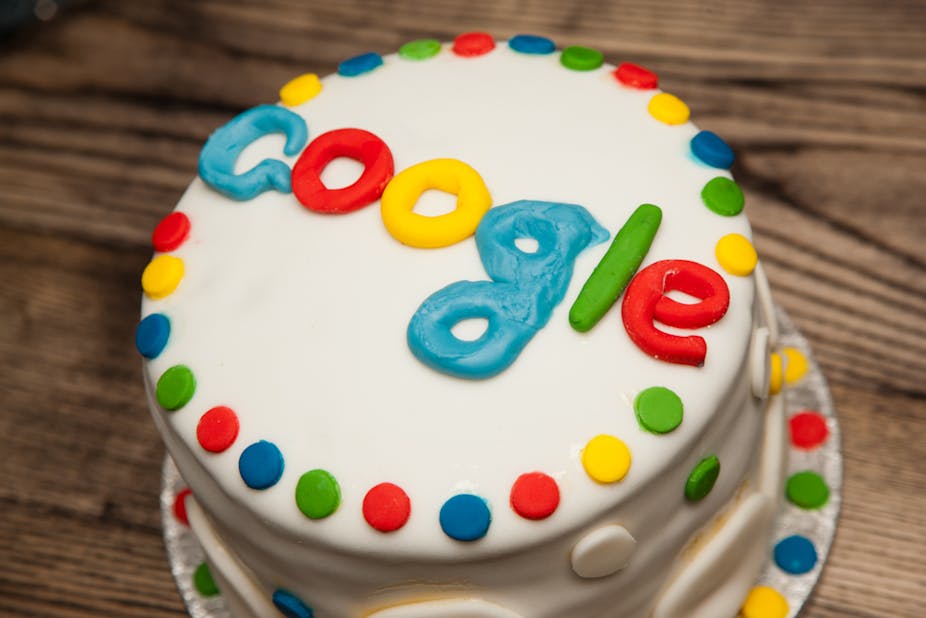What did you achieve by the time you were 15? For most, a summary of our first decade-and-a-half of existence would not make for a bestselling biography. But one teenager celebrating a significant birthday this week can confidently say it has changed the world.
By the time you were 15, had you become a verb? Google had done it by the time it was nine, and, really, even before that. Getting into the dictionary in 2009 probably won’t be seen by Larry Page and Sergey Brin as their top achievement but this linguistic shift is just one way in which a company that started in a garage has changed the world in a relatively short life. Its influence is felt not just in the technology that we use but in the way we work, the way we communicate and the even the way we see ourselves.
Imagine a world without Google and you’re not just seeing a life without information at your fingertips. Among the most exciting services to come from Page, Brin and their team over 15 years include Google Scholar, which has opened up knowledge in all kinds of unexpected ways, Gmail, which seems to evolve on almost a weekly basis, and Google Maps, which allows us to see parts of the world that are otherwise inaccessible. In a move that perfectly reflects Google’s ability to combine the fun with the groundbreaking, the same service that lets you look at your house from space has enabled economic geographers, for example, to research water supply in remote desert areas.
Beyond technology, this company has changed the way we work. Laugh at the thought of employees bouncing around on fitness balls in the office but look around you. Can you really say there isn’t just a little bit of Google in your office? The desire to create a nourishing work environment has spread rapidly in the past 15 years and Google deserves a lot of credit for that. Bouncy balls are not for everyone but communal spaces, good design and good staff services are now serious concerns for companies rather than luxuries.
On top of the very different way it treats its employees, Google has a unique relationship with its customers. Even if you don’t buy into the “cult” of Google, it has probably changed you in one way or another. First it enabled you to find out anything you wanted to know, then it let you connect with the world in entirely new ways, and now, this unruly teenager is wreaking havoc with how we think about our own identities. At what point in history has a company known this much about what you like, where you go and who you spend your time with? Many of us aren’t even aware of what information is being gathered about us but we allow it to happen because we can no longer live the life we want without Google. Because of Google, we now need to think about our “online identity” as it applies to our current life, our future choices and even our death. After you’ve left this world, you live on via Google. That’s a phenomenon we are yet to even fully grasp, let alone know how to manage.
But Google, like any teenager, has become a bit of a handful of late. It pushes the boundaries of what is permissible every time it opens up a new frontier in what is possible. Should we let a private company censor information just because we have come to rely on it so heavily to supply us with that information? What are our privacy rights when we use Google Glass or Gmail? How much knowledge, from literature to geography, does this giant effectively own?
Is it right for one company to dominate in the way Google now does? General Electric and Microsoft are huge companies but as important as they are to products and services, they don’t permeate our lives in quite the same way as Google. Companies like Google, Amazon, Facebook and Twitter are a new generation. They adapt themselves constantly to suit their customers but they are also re-shaping society. They have significant lobbying power and are not afraid to use it. Would you give a 15-year old this much responsibility?

